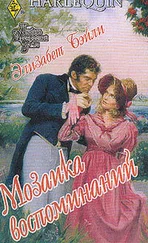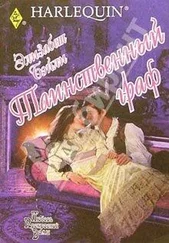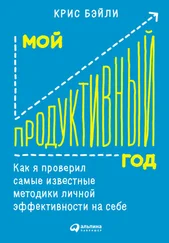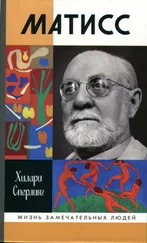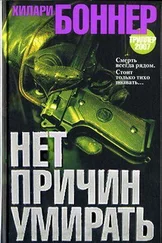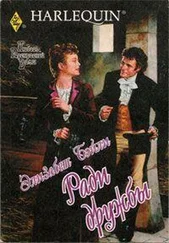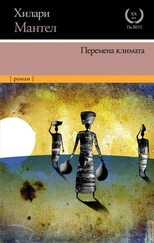Хилари Бэйли - The Ramparts
Здесь есть возможность читать онлайн «Хилари Бэйли - The Ramparts» весь текст электронной книги совершенно бесплатно (целиком полную версию без сокращений). В некоторых случаях можно слушать аудио, скачать через торрент в формате fb2 и присутствует краткое содержание. Жанр: Проза, на английском языке. Описание произведения, (предисловие) а так же отзывы посетителей доступны на портале библиотеки ЛибКат.
- Название:The Ramparts
- Автор:
- Жанр:
- Год:неизвестен
- ISBN:нет данных
- Рейтинг книги:3 / 5. Голосов: 1
-
Избранное:Добавить в избранное
- Отзывы:
-
Ваша оценка:
- 60
- 1
- 2
- 3
- 4
- 5
The Ramparts: краткое содержание, описание и аннотация
Предлагаем к чтению аннотацию, описание, краткое содержание или предисловие (зависит от того, что написал сам автор книги «The Ramparts»). Если вы не нашли необходимую информацию о книге — напишите в комментариях, мы постараемся отыскать её.
The Ramparts — читать онлайн бесплатно полную книгу (весь текст) целиком
Ниже представлен текст книги, разбитый по страницам. Система сохранения места последней прочитанной страницы, позволяет с удобством читать онлайн бесплатно книгу «The Ramparts», без необходимости каждый раз заново искать на чём Вы остановились. Поставьте закладку, и сможете в любой момент перейти на страницу, на которой закончили чтение.
Интервал:
Закладка:
Naturally, having tea in the Strangers’ Restaurant, we chatted the matter over between ourselves in low voices until Arthur intruded in an objectionable way. “Ugh!” he said. “Old Keeney, flesh-eating Keeney.”
We immediately silenced him, partly in case anyone at a nearby table should hear, partly because his exuberant rudeness did not suit us. But Arthur continued in the same vein. “He’s got a dog. It lives in the house. They all pat it on the head. Ugh — it makes me feel sick. Keeney’s revolting.”
I told the boy he was making us feel sick, but I secretly thought that as things had turned out, we should have paid more attention to the children’s fantastic tales. “I bet I could tell you where he is — the dirty old man,” he added.
I pressed him to tell me, but he would not say. In fact he appeared afraid to tell me. Regan was now so upset that I urged her to go and relax in one of the rooms upstairs before the performance while I took Arthur on a sightseeing tour of the town.
As we went around the museum, examining the fused, charred and horrendous relics of the town’s past, I again put pressure on Arthur to tell me where to find Keeney and he refused again to tell me. I decided he was just making childish mysteries and dropped the subject.
I was scarcely in the mood for Regan’s recital after the hectic events of the day and she, I could tell, was almost equally disturbed. She played with an unwonted vigor and passion — the audience was perturbed by it and slightly displeased. The applause at the end was polite. In a way I had almost enjoyed her uncontrolled playing, but I did not expect anyone else to do the same.
She did not mention the performance at all over supper. She talked only of Keeney, about where he might be, about the dog. “We’ve got to find him, we’ve got to find him,” she kept repeating.
Arthur was asleep in the Strangers’ House, and I was for staying in Juram overnight and returning in the morning. But Regan, still speculating hysterically about Keeney, wanted to go home straightaway and was very distressed at the idea of not setting off immediately. It upset me so much to see her in this state that I gave in.
By the time we had woken Arthur and got him in the car, all I wanted to do was go home and get into bed. As we glided out of Juram, Arthur sat in the back crooning a tune he was making up and knocking together three round stones on a string which he had bought himself. Regan sat rigid in the seat next to me wearing on her face an expression of intensity I had not, I must say, seen since the days of our courtship and early marriage.
As we glided through the trees in the darkness, a memory came through my fatigue. I recalled — and it can only have been a deliberate forgetting — the name of the little girl who had hidden, and tried to rear, the little dog. It was, of course, Regan herself.
I can see her now, fat doe caught in the bush. Is she caught? She must be, for I see stars in a gap in the trees overhead, I see her. Creep up, creep up, singing my song in my head — catch, catchie, catcho, I’ll kill you, dearie. And raise my club and leap. But she breaks, and runs on a broken leg. Follow swiftly, I’ll tire her yet. Soft, catchie, catcho, I’ll batter her head with my club, drag her back, her head, my club, all bloody. Run, panting, nearly there. The light, the sky, the open — I’ll have to cross, I’ll have to cross, I’ll have to cross.
And I recalled that Regan had been an unorthodox child. Her mother feared for her.
We glided along the dark forest road. I pushed the car up to fifteen. Arthur crooned and knocked in the back. Regan sat in the same pose, pale and intent, as if listening to an important message from an invisible stranger. My headlights beamed along the forest edges. The weather was still — nothing stirred. I was half-asleep.
And suddenly Regan screamed and Arthur shouted, “Look — Dad!”
There was a shaking of bushes and the lower branches of the trees on one side of the road. Fifty feet ahead a deer broke from the trees and ran across the road.
I was about to speak when Regan screamed again.
The bushes parted and a man ran out in pursuit of the deer. He stopped short in the middle of the road, a club raised above his head, blinded by our lights. His eyes were tight shut against the glare. His mouth was open in a roar of pain, revealing blackened and broken teeth. He was short, thickset, his skin pasty and white, his eyes rimmed in red. He wore a torn shirt revealing blue tattoos in a geometric design all over his chest. His trousers were made of some animal skip. His feet were bare, toes splayed, ending in thick, curved nails. He wore a leather cap on which were sewn three or four hedgehog skins. His hair was long, black and matted. One short, very pale arm, covered in black hairs, was badly gashed and dripped blood onto the road.
He stood there roaring, with his eyes tight shut, as we drifted toward him.
I acted swiftly, stopping the car and switching off the lights at the same time, hoping desperately that he would go away. In the darkness, I guess, he and any others with him would be able to see us, although we could not see them. We sat there in the darkness on the forest road. Behind me Arthur moved a little.
Then I said, “I’m going to turn the lights on and start away quickly. If they’re around us they may be dazed by the lights. Hold on to the handles of the doors.”
I turned on the, lights and the car leaped forward— down a perfectly empty road. In the darkness the man had run back into the forest.
After a pause Arthur said, rather shakily, “What was that? Who was that?”
Neither of us answered.
“It’s what they say, isn’t it?” Arthur demanded. “The forest’s full of the misborn, isn’t it?”
I said, “It’s true that in the early days of the towns they used to put malformed babies just inside the forest edge — and they said they were picked up and reared there by the others. But my grandfather said that his father told him that they died.”
He had said, in fact, that everyone knew they died. Their cries could be heard if you went too close. That must be one of the reasons why our houses have by tradition always been set so far back from the forest — so that people could not hear the cries of the dying babies.
I could hear Arthur retching in the back of the car.
“It was all a long, long time ago,” Regan told him. “There are no malformed babies now.”
“So you say,” said Arthur. Regan did not reply. I wondered why not and then realized that I knew. The False Arrivals. A woman would take to her bed, bear a child, the council would visit, as usual, and she would declare the child Arrived and Departed. The women must know about all this. The men did not, said they did not, thought they did not — there are things people must forget, pretend not to know until they really do forget. I had forgotten that Regan was the girl with the small dog in the potting shed. She had forgotten the child who came before Arthur. City life relied on this forgetting. What else had we forgotten, eliminated, suppressed? For a second, there on the forest road, I was in a nightmare world where I was living my life beside a monster I never saw, a fiend which sat beside me as I ate, lay in bed with me at night, which I gazed over, around and through and never noticed at all.
Arthur’s clear, plangent voice pierced this evil dream. “Well, if that man wasn’t misborn, and he didn’t look it, who was he, then? Where did he come from?”
Neither of us spoke. Then Regan said, “Arthur. You know very well what happens when someone in the city does things they shouldn’t. Perhaps they steal or — whatever they do.”
Читать дальшеИнтервал:
Закладка:
Похожие книги на «The Ramparts»
Представляем Вашему вниманию похожие книги на «The Ramparts» списком для выбора. Мы отобрали схожую по названию и смыслу литературу в надежде предоставить читателям больше вариантов отыскать новые, интересные, ещё непрочитанные произведения.
Обсуждение, отзывы о книге «The Ramparts» и просто собственные мнения читателей. Оставьте ваши комментарии, напишите, что Вы думаете о произведении, его смысле или главных героях. Укажите что конкретно понравилось, а что нет, и почему Вы так считаете.

